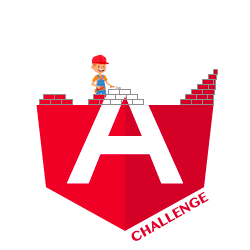🟢 Projection
Information
In Angular, content projection is a powerful technique for creating highly customizable components. Utilizing and understanding the concepts of ng-content and ngTemplateOutlet can significantly enhance your ability to create shareable components.
You can learn all about ng-content here from simple projection to more complex ones.
To learn about ngTemplateOutlet, you can find the API documentation here along with some basic examples.
With these two tools in hand, you are now ready to take on the challenge.
Statement
You will start with a fully functional application that includes a dashboard containing a teacher card and a student card. The goal is to implement the city card.
While the application works, the developer experience is far from being optimal. Every time you need to implement a new card, you have to modify the card.component.ts. In real-life projects, this component can be shared among many applications. The goal of the challenge is to create a CardComponent that can be customized without any modifications. Once you’ve created this component, you can begin implementing the CityCardComponent and ensure you are not touching the CardComponent.
Constraints
- You must refactor the
CardComponentandListItemComponent. - The
NgFordirective must be declared and remain inside theCardComponent. You might be tempted to move it to theParentCardComponentlikeTeacherCardComponent. CardComponentshould not contain anyNgIforNgSwitch.- CSS: try to avoid using
::ng-deep. Find a better way to handle CSS styling.
Bonus Challenges
- Try to work with the new built-in control flow syntax for loops and conditionals (documentation here)
- Use the signal API to manage your components state (documentation here)
- To reference the template, use a directive instead of magic strings (What is wrong with magic strings?)
